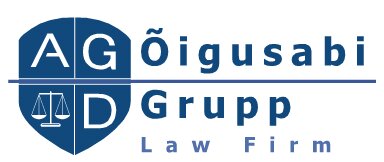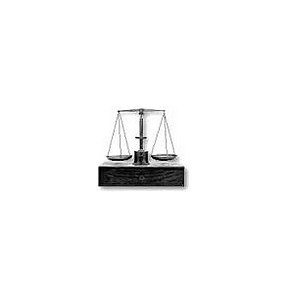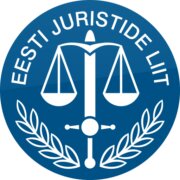Best Professional Malpractice Lawyers in Tallinn
Share your needs with us, get contacted by law firms.
Free. Takes 2 min.
List of the best lawyers in Tallinn, Estonia
About Professional Malpractice Law in Tallinn, Estonia
Professional malpractice in Tallinn, Estonia refers to the failure of professionals to meet the required standards of their respective fields, resulting in harm or loss to their clients. This can involve a wide range of professions, including medical practitioners, lawyers, architects, accountants, and engineers, among others. The legal framework governing professional malpractice in Estonia aims to ensure accountability and provide recourse for individuals who have suffered due to the negligence or misconduct of professionals.
Why You May Need a Lawyer
There are several situations where the services of a lawyer specializing in professional malpractice can be crucial. These include cases where a professional's poor performance or advice leads to significant financial loss, health issues, or damages. Examples include medical errors, legal advice that leads to an unfavorable outcome in a court case, or an accountant’s negligence resulting in financial penalties. Legal guidance is essential to navigate the complexities of these cases, ensure fair compensation, and hold professionals accountable for their actions.
Local Laws Overview
In Estonia, the legal system provides measures to address professional malpractice through both civil and, in some cases, criminal liability. Key aspects include: - The requirement of demonstrating a breach in the duty of care, which means proving that the professional did not perform their duties to the standard expected in their field. - Causation, which involves showing that the professional’s failure directly caused the harm suffered. - Establishing damages, which involves quantifying the extent of financial, physical, or emotional damage incurred. The court system in Estonia provides the venue for these disputes, and it is generally advisable to seek settlement before proceeding to litigation. Professional associations also have guidelines and disciplinary procedures to handle professional conduct issues.
Frequently Asked Questions
What is considered professional malpractice in Estonia?
Professional malpractice involves any negligent act or omission by a professional that falls below the standard of practice in their industry, leading to harm or injury to a client.
How do I prove a professional malpractice case?
Proof requires demonstrating a breach of duty, causation, and the resulting damages. This often involves expert testimony to establish the standard of care and how it was violated.
What professions are most commonly associated with malpractice claims?
Malpractice claims are most common in fields such as healthcare, law, accounting, architecture, and engineering, where professional advice and services can have profound effects on clients.
Can I file a malpractice claim against a public official in Tallinn?
Malpractice claims can be filed against public officials if their actions as professionals resulted in harm due to negligence or misconduct.
What are the potential outcomes of a malpractice lawsuit?
Outcomes may include compensation for damages, formal apologies, remediation of harm caused, and in some cases, disciplinary action against the professional involved.
Are there time limits for filing a malpractice claim in Estonia?
Yes, there are statutory limitations which can vary based on the nature of the malpractice. It is crucial to seek legal advice promptly to ensure compliance with these deadlines.
Can malpractice cases be settled out of court?
Yes, many malpractice cases are settled out of court to avoid lengthy litigation. Settlements can often be negotiated through mediation or direct negotiation between parties.
What compensation might be available from a successful malpractice claim?
Compensation can include economic damages like medical expenses and lost income, as well as non-economic damages such as pain and suffering or loss of enjoyment of life.
Is an expert witness necessary in every malpractice case?
While not required in every case, expert witnesses often play a critical role in establishing the standard of care and demonstrating how it was breached.
How can I find a qualified malpractice lawyer in Tallinn?
You can seek recommendations from professional legal associations, conduct online research, or consult with acquaintances who have experienced similar legal issues.
Additional Resources
For those seeking more information or assistance with professional malpractice issues in Tallinn, consider the following resources: - The Estonian Bar Association: A resource for finding qualified legal professionals. - The Estonian Medical Association: Provides guidance and support for issues related to medical malpractice. - Consumer Protection and Technical Regulatory Authority of Estonia: Offers advice and regulation concerning professional services. - Estonian Patent Office: Useful for intellectual property malpractice. Each of these organizations can provide insights and support in navigating malpractice issues in Estonia.
Next Steps
If you believe you have been a victim of professional malpractice, the following steps can guide you in seeking legal redress: 1. Document all interactions and communications with the professional in question. 2. Seek an independent expert opinion regarding your situation. 3. Consult a qualified malpractice lawyer to evaluate the strength of your case. 4. Consider all remedies, including negotiation, mediation, or litigation, based on your lawyer's advice. 5. Make timely decisions to comply with any statutory limits for filing claims. By taking these steps, you can better protect your rights and pursue a fair resolution to your situation.
Lawzana helps you find the best lawyers and law firms in Tallinn through a curated and pre-screened list of qualified legal professionals. Our platform offers rankings and detailed profiles of attorneys and law firms, allowing you to compare based on practice areas, including Professional Malpractice, experience, and client feedback.
Each profile includes a description of the firm's areas of practice, client reviews, team members and partners, year of establishment, spoken languages, office locations, contact information, social media presence, and any published articles or resources. Most firms on our platform speak English and are experienced in both local and international legal matters.
Get a quote from top-rated law firms in Tallinn, Estonia — quickly, securely, and without unnecessary hassle.
Disclaimer:
The information provided on this page is for general informational purposes only and does not constitute legal advice. While we strive to ensure the accuracy and relevance of the content, legal information may change over time, and interpretations of the law can vary. You should always consult with a qualified legal professional for advice specific to your situation.
We disclaim all liability for actions taken or not taken based on the content of this page. If you believe any information is incorrect or outdated, please contact us, and we will review and update it where appropriate.












